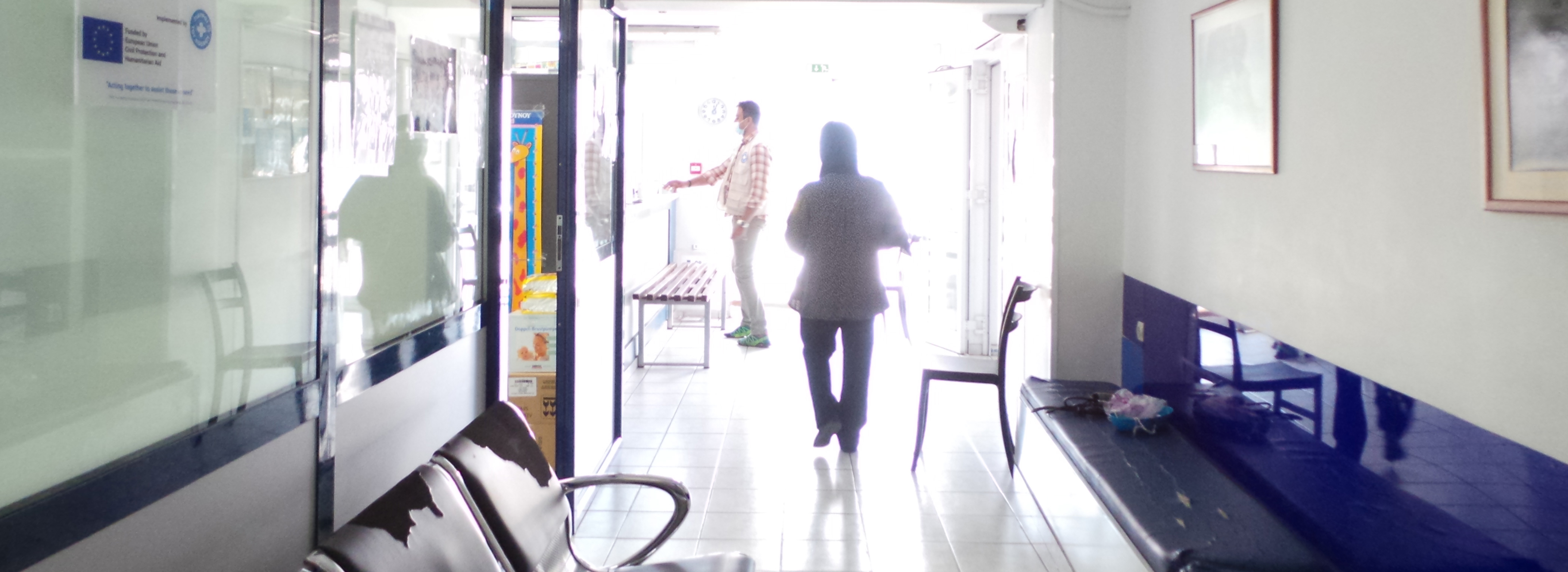The research was carried out in the framework of the project “Opening Access to Health and Medicine for All” through the Active citizens fund, implemented by Médecins du Monde Greece and partners GIVMED and The Press Project (TPP). This data research is part of the action of monitoring the current health – medicine system and was prepared in collaboration with Alekos Anastasiou from Medecins du Monde and Alexandros Gasteratos from The Press Project. Editors Anastasios Yfantis & Thodoris Veronikis.
The Greek healthcare system combines the provision of services from the public and private sectors. The elements that make up the health care system involve the coexistence of a national health care system, dominated by inpatient services, compulsory social insurance and a large part of the private sector. The central provider on the public side is the National Health System (NHS), which provides primary and secondary care services and is financed by the central state budget. Part of this is financed by insurance contributions and another part by direct or indirect taxes. The responsible and regulatory body for the health sector in Greece, whether public or private sector services, is the Ministry of Health.
The NHS was created by Law 1397/83 in order to bring all health services under one roof. This reform was aimed at providing free primary and secondary health services to all citizens residing in Greece. Although it was created to address specific issues and to unify health services under one umbrella, in the course of its development it faced significant challenges such as underfunding, fragmentation of services, bureaucracy and understaffing, creating both accessibility and operational barriers.
National Health Service Organisation
A key point of reform was in 2011, when the National Organisation for the Provision of Health Services (EOPYY) was established. With the establishment of EOPYY, all those structures and services of the insurance funds that were related to health were consolidated, while the health care service delivery system is now supported by a unified regulation. EOPYY is a public corporate body which acts as the sole purchaser of healthcare services for the majority of the country’s insured citizens and their dependent family members.
Since 2016, the uninsured part of the population has been covered by a special regulation. In particular, Law 4368 of 2016, which is complemented by Joint Ministerial Decision A3(c)/GP/koik.25132/4-4-2016, provides for the right of free access to all public health structures for the provision of hospital and medical care to the uninsured and vulnerable social groups. The change brought about by this law concerns the equalization of the rights of the insured, the uninsured and former holders of the Individual Account for the Economically Disadvantaged or Uninsured in terms of access to the public health care system.
Local Health Units
Another important initiative was the establishment of Local Health Units (LHUs). The TOMS are essentially Primary Health Care Service Units, which are staffed by a small multidisciplinary health team. The population under their responsibility is estimated at 10.000-12.000 people. They are multidisciplinary units in the sense that they provide not only medical services but also integrated supervision, including biopsychosocial and family planning. However, in practice, outside their initial period of operation, the TUMS are operating like the earlier health centres, due to limited resources and without full development of their services. In many areas of the Greek periphery these health structures are under-utilised due to lack of staff and equipment.
In addition to the structure and services, an important element that plays an important role is the financing of the system from the state budget. In recent years there has been a sharp decline in the amount of funds allocated to health care, with the overall amounts being below the European average. The economic crisis that erupted in 2008 and the continuous programmes of budgetary adjustments that followed have undoubtedly affected the health sector in Greece. The effects of this policy can be seen in the explosion of private spending, in the imbalances in access to the health system, in the reductions in staff and equipment, while in the period 2012-2015, entire hospital wards were closed, while others were deprived of specific clinics, which were transferred to other hospitals.
Active citizens fund

The €12 million Active citizens fund is funded by Iceland, Liechtenstein and Norway and is part of the European Economic Area (EEA) funding mechanism for the period 2014 – 2021, known as EEA Grants.The programme aims to strengthen and enhance the sustainability of civil society and highlight its role in promoting democratic processes, enhancing citizens’ participation in public life and defending human rights. The Active citizens fund grant for Greece is managed jointly by the Bodossaki Foundation and SolidarityNow.
